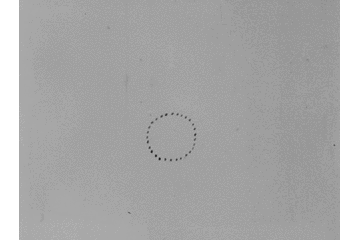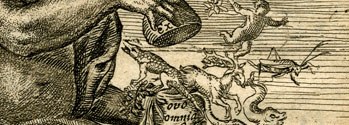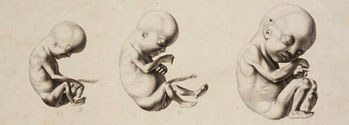23–25 September 2015
Department of History and Philosophy of Science, University of Cambridge

Reproduction is one of the most persistently generative themes in the history of cinema. Storks, cabbage fairies, golems, homunculi, robots, parasitic aliens, and clones have fascinated film-makers and audiences for more than a century. Today we have grown accustomed not only to the once controversial portrayals of sperm, eggs, and embryos in science and medicine, but also to the artificial wombs, monstrous creations, and dystopian futures of science fiction and fantasy. Yet, while scholars have explored key films and genres, especially in response to the recent cycle of Hollywood 'mom coms', the analytic potential of reproduction on film remains largely untapped. This conference aims to explore reproduction as a theme to unite diverse strands of film history that are not usually considered in the same frame. Reproduction can link films across a wide range of periods, national cinemas, and genres as different as slapstick and horror, melodrama and social realism, sex education and experimental. Moreover, biological reproduction is a potent metaphor for the mechanical reproduction of cinematography.
The conference will bring together scholars representing various disciplines and periods spanning the entire history of film. It will begin on Wednesday evening with a screening of short films. Talks on Thursday and Friday will summarize pre-circulated papers and be followed by discussion in 45-minute slots, in such a way as to promote critical engagement between fields and approaches.
Programme
| Wednesday 23 September | |
|---|---|
| 19.30–21.00 | Film screening – Main Lecture Theatre of the Old Divinity School, St John's College |
| Thursday 24 September | |
| 09.30–10.00 | Registration and coffee |
| 10.00–10.15 | Welcome and introductions |
| 10.15–11.00 | Opening remarks by Tom Gunning (University of Chicago) |
| Chair: Nick Hopwood | |
| 11.00–12.30 | 1. Oliver Gaycken (University of Maryland): Cinema's Plasticity: The Embryological Series and Animation Discussant: Sarah Franklin 2. Patrick Ellis (University of California, Berkeley): A Cinema for the Unborn: Moving Pictures, Mental Pictures, and Electra Sparks' New Thought, 1911–13 |
| 12.30–13.30 | Lunch |
| Chair: Kate O'Riordan | |
| 13.30–15.00 | 3. Christina Benninghaus (Justus-Liebig-University, Giessen): Paternal Desires: Childlessness and Masculinity in Weimar Films, 1926 Discussant: Jessica Borge 4. Caitjan Gainty (King's College London): Between Joseph DeLee and Pare Lorentz: The Fight for Life (1940) |
| 15.00–15.30 | Tea |
| Chair: Tim Boon | |
| 15.30–17.00 | 5. Christian Bonah (University of Strasbourg): Sex Education Films Between Family Planning, State Secularism and Catholic Educational Leagues in France, 1950–70 Discussant: Isabelle McNeill 6. Anja Laukötter (Max Planck Institute for Human Development, Berlin): Relaying Knowledge on Human Reproduction and Constructing New Subjectivities: Sex Education Films in the GDR in the early 1960s |
| 19.00 | Conference dinner |
| Friday 25 September | |
| Chair: Francis Neary | |
| 9.30–11.00 | 7. David A. Kirby (University of Manchester): 'A Very Painful and Unpleasant Business': Reproduction, Religion and Movie Censorship, 1930–68 Discussant: Fran Bigman 8. Ray Macauley (University of Manchester): Faithful Reproduction: Pregnancy, Abortion, and Medical Care in Christian Films |
| 11.00–11.30 | Coffee |
| Chair: Jean-Baptiste Gouyon | |
| 11.30–13.00 | 9. Salim Al-Gailani (University of Cambridge): 'Teaching Practically and Visually': Natural Childbirth on Film in the 1950s Discussant: Ayesha Nathoo 10. Jesse Olszynko-Gryn (University of Cambridge): Thin Blue Lines: Clearblue and the Rise of Pregnancy Testing in British Cinema and Television |
| 13.00–14.00 | Lunch |
| Chair: Sarah Franklin | |
| 14.00–14.45 | 11. Janina Wellmann (University of Lüneburg): Animating Embryos: The 'In Toto' Representation of the Embryo Discussant: Dmitriy Myelnikov |
| 14.45–15.15 | Coffee |
| 15.15–16.15 | Closing remarks by Kate O'Riordan (University of Sussex) |
| 16.15–17.00 | Final discussion |
The registration fee of £30 (£15 for students/unwaged) includes lunch and tea/coffee on both days. Places are limited.
Organisers: Jesse Olszynko-Gryn (Department of History and Philosophy of Science, University of Cambridge), Caitjan Gainty (Department of History, King's College London) and Patrick Ellis (Department of Film and Media, University of California, Berkeley)
Supported by a Wellcome Trust strategic award in the history of medicine to the Department of History and Philosophy of Science, University of Cambridge, and by the Centre for the History of Science, Technology and Medicine at King's College London.



